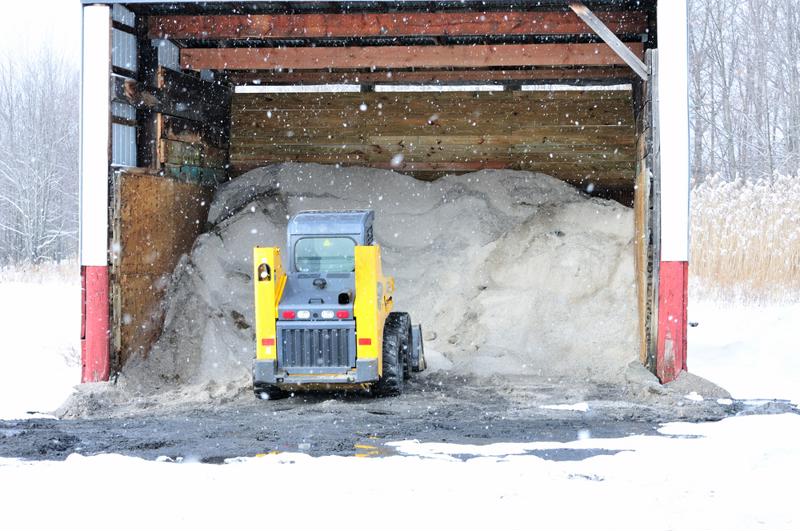

The winter season brings with it many different challenges for drivers. Black ice, low visibility and other issues can make driving a headache in the cold months. And solutions to these might even result in new problems of their own.
Take, for example, the salt that is laid on roads to melt snow and ice. This safety measure keeps the surface safe, but can also wear down different parts of your vehicle, including the brakes. If you live in an area where snow is a common occurrence, it is important to be proactive in dealing with salt before it damages your brakes.
Salted asphalt
What exactly is road salt for, and how does it damage your vehicle? Road salt is distributed by service vehicles in anticipation or in response to snowfall and cold temperatures. These salts prevent snow and ice from bonding with the surface of the road, meaning they can still be driven on despite harsh conditions. And road salt is effective: one study in 2012 by the American Highway Users Alliance found that the application of it reduced accidents during winter weather by up to 85%. The economic benefits also cannot be understated - traffic, and therefore society, don't need to grind to a halt during snowfall thanks to the application of these salts.
But for all their benefits, road salts also have a wide variety of negative effects. They often pollute bodies of freshwater, contributing to the poisoning of various animal species. In addition, the corrosive properties of salt result in structures, such as bridges, degrading much faster than they normally would. This corrosion also affects consumer vehicles. Brake failure as a result of road salt may occur, but there are ways to prevent it from happening.

Keeping your brakes safe
The Salt Belt is the area of the United States where winter weather prompts the routine salting of roads, according to Business Insider. If you live in this area, or in another locale where road salting is common, then you must take steps to ensure your brakes stay safe. Deicing salts can affect any exposed parts on the underside of a vehicle. Brake lines, in particular, are susceptible to corrosion. If a brake line is corroded, the performance of your brakes will suffer. In some cases, they may fail completely.
Thus, it is important to be proactive when it comes to winter car care. Owners should routinely wash the undersides of their cars, according to the National Highway Transportation Administration. It's not enough to let soap and water drip down the exterior of your car - the bottom should be directly cleaned to the best of the owner's ability. This is especially important on vehicles from the early to mid-2000s. The NHSTA states that cars from this era used materials that were highly susceptible to corrosion in the manufacture of their brake lines. For the past decade or so, companies have increasingly used nylon and plastic-coated steel lines to reduce the risk of corrosion from salt. However, this is not to say that newer cars are immune to brake damage - all drivers should wash their cars thoroughly, no matter how new their vehicle is.
Car owners can take further steps to prevent damage to brakes, including routine maintenance and inspections at trusted automotive shops. Stock brakes can be swapped out for more resistant, cold-friendly models in areas where winter weather is particularly harsh. And drivers in cities can make use of public transit instead of their own vehicles when there is road salt present.
Road salt can wreak havoc on your brakes and other parts of your vehicle, but there are many measures that can be taken to prevent corrosion. Road safety will always require high-quality, responsive brakes that stand up to tough conditions and general wear and tear. Contact Greening Associates for a complimentary consultation to ensure your brakes in good working order and stay that way.